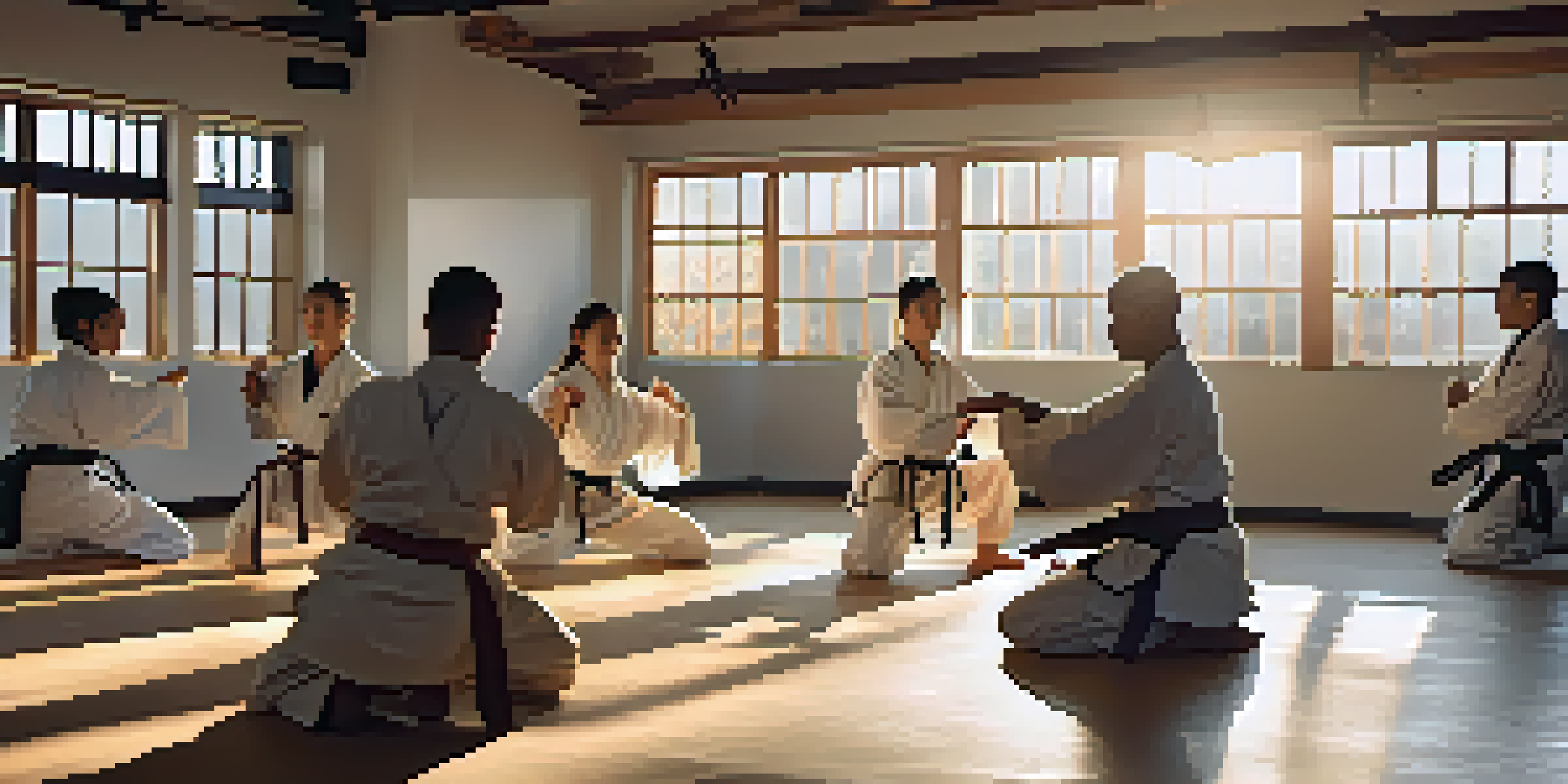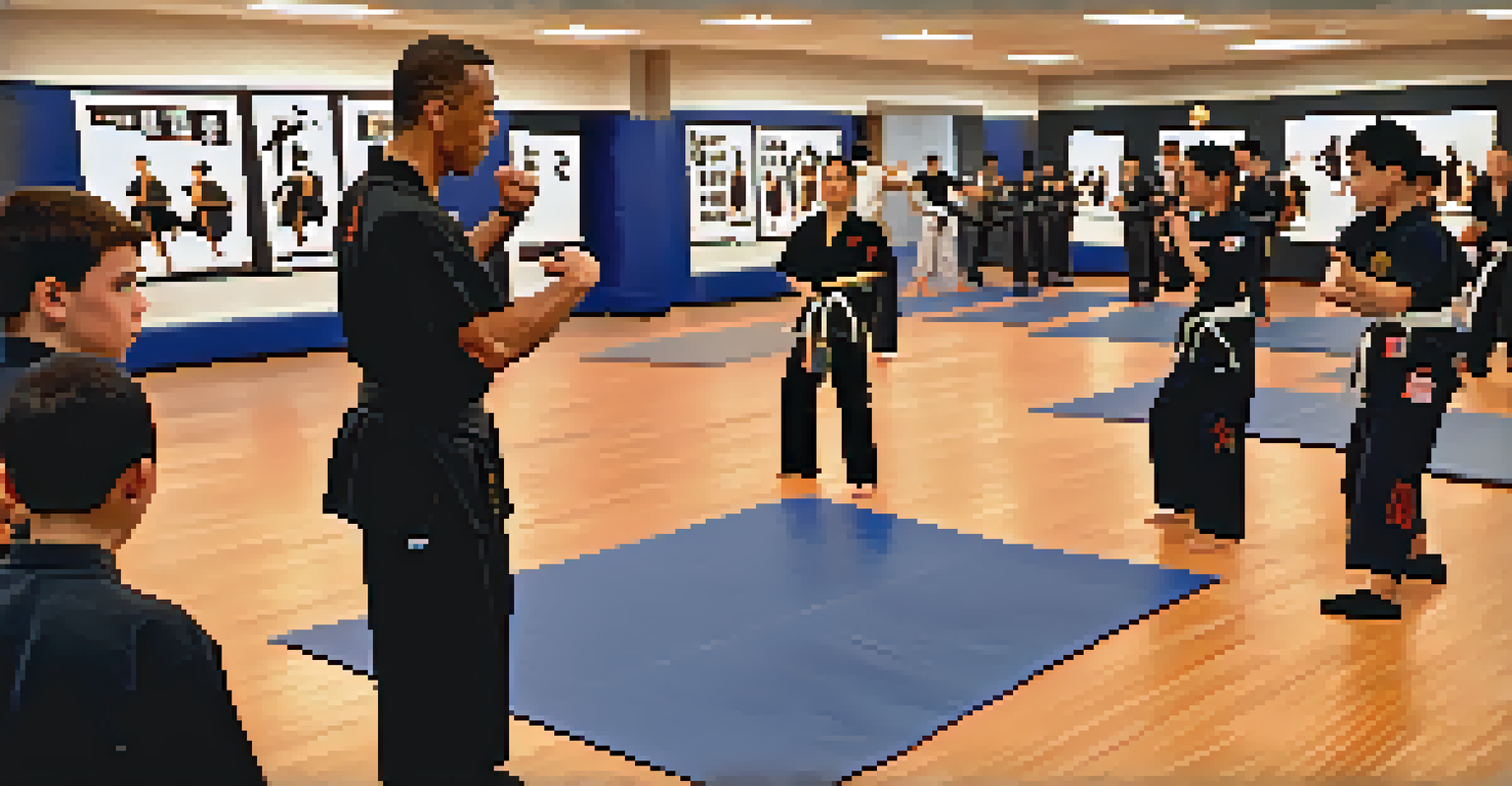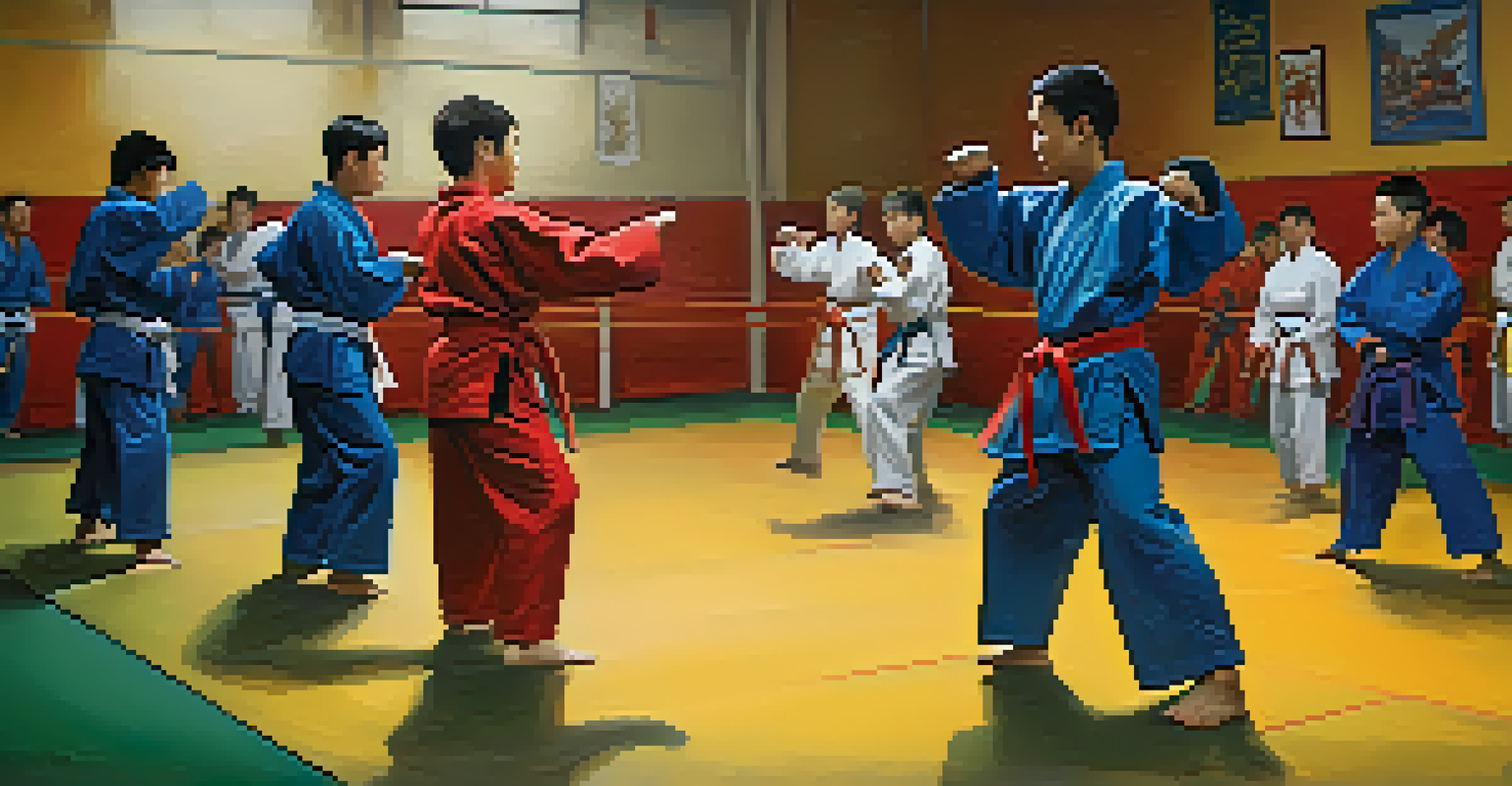Creating Safe Spaces: Martial Arts Studios Combat Bullying

The Role of Martial Arts in Building Confidence
Martial arts training provides individuals with the tools to build self-esteem. As students learn new techniques, they experience a sense of accomplishment that translates into everyday life. This newfound confidence can deter potential bullies, who often prey on those who appear uncertain.
The ultimate aim of martial arts is not having to use them.
In addition to physical skills, martial arts emphasizes mental resilience. Practitioners learn to remain calm under pressure and handle confrontations with poise. This mental training is crucial for developing the inner strength needed to stand up to bullying.
Moreover, the supportive environment in martial arts studios fosters camaraderie among students. They cheer each other on, creating bonds that reinforce a sense of belonging. When individuals feel connected to a community, they are less likely to be targeted by bullies.
Creating a Culture of Respect and Inclusion
Martial arts studios often promote values such as respect, discipline, and humility. By instilling these principles, instructors help students understand the importance of treating others well. This foundational ethos discourages bullying behavior and nurtures kindness.

Instructors play a pivotal role in shaping the studio's culture. They set a tone of inclusivity, ensuring that every student feels valued, regardless of their skill level. When everyone feels accepted, the likelihood of bullying diminishes significantly.
Building Confidence Through Training
Martial arts training boosts self-esteem and mental resilience, empowering individuals to confront bullying.
Additionally, studios often implement anti-bullying policies that outline unacceptable behaviors. These guidelines provide clear expectations and consequences, making it easier for students to understand their responsibilities. Such measures create a safe haven where students can flourish.
Empowering Students Through Self-Defense Techniques
One of the key benefits of martial arts training is learning self-defense techniques. These skills empower students to protect themselves in threatening situations. Knowing how to defend oneself can alleviate fear and anxiety associated with bullying.
Strength does not come from physical capacity. It comes from an indomitable will.
Self-defense training also emphasizes the importance of de-escalation and conflict resolution. Students learn that physical confrontation is a last resort and that communication is often more effective. This approach fosters a more peaceful environment, reducing instances of bullying.
Moreover, as students gain proficiency in self-defense, they often become role models for their peers. Their confidence and skills can inspire others to stand up against bullying, creating a ripple effect within the community.
Fostering Strong Peer Relationships
Martial arts provides an excellent platform for students to build meaningful friendships. The shared experience of training together creates bonds that extend beyond the dojo. These friendships can serve as a protective barrier against bullying.
Through teamwork in sparring and drills, students learn to support one another. This collaboration encourages empathy and understanding, as they recognize the challenges their peers face. When students look out for each other, bullying behavior is less likely to thrive.
Creating a Respectful Environment
Studios promote values like respect and inclusivity, which help to discourage bullying behaviors among students.
Additionally, the diverse environment of martial arts studios allows students from different backgrounds to interact. This exposure fosters acceptance and breaks down social barriers, creating a more inclusive atmosphere. A united front against bullying can be incredibly powerful.
The Importance of Open Communication
Open communication is vital in addressing bullying within martial arts studios. Instructors encourage students to voice their concerns and share their experiences. This dialogue creates an environment where issues can be addressed proactively.
Regular discussions about bullying and its effects can help destigmatize the topic. When students feel comfortable talking about their experiences, it fosters a sense of community support. This openness not only combats bullying but also empowers students to seek help when needed.
Moreover, instructors can provide resources and tools for students to handle bullying situations. Equip them with knowledge about reporting incidents or seeking assistance. This proactive approach ensures that students feel supported and empowered.
Involving Parents and Guardians
Involving parents and guardians in the martial arts community strengthens the fight against bullying. When families are engaged, they can reinforce the values taught in the studio at home. This alignment creates a consistent message about respect and kindness.
Studios can host workshops or informational sessions for parents, educating them about bullying and its signs. When parents are aware, they can better support their children and identify any issues early on. This partnership between studios and families can be instrumental in preventing bullying.
Empowering Through Self-Defense
Learning self-defense not only equips students to protect themselves but also fosters a culture of support against bullying.
Additionally, creating a forum for parents to share their experiences fosters a collaborative community. This support network can help families navigate challenges together, ensuring that students feel safe both in and out of the dojo.
Celebrating Diversity in Martial Arts
Celebrating diversity within martial arts studios is essential in combating bullying. Different backgrounds and experiences enrich the training environment, promoting a culture of acceptance. When students see diversity as a strength, they are less likely to engage in bullying behavior.
Studios can highlight cultural celebrations and encourage students to share their traditions. This not only educates everyone about different perspectives but also fosters empathy and understanding. When students appreciate each other’s uniqueness, they are more likely to support one another.

Moreover, diverse role models in martial arts can inspire students from various backgrounds. Seeing instructors and peers who reflect their experiences can empower students. Representation matters, and it plays a crucial role in creating an inclusive atmosphere.